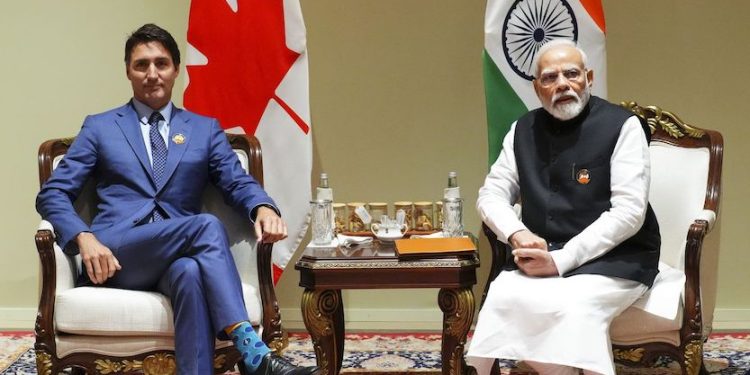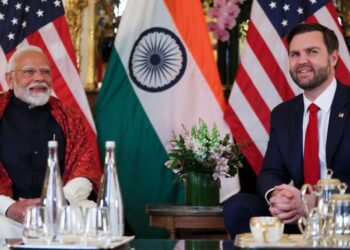In a joint statement released on Tuesday, several Indian diaspora civil society groups called on the Canadian Government to “stand with the oppressed peoples of India including Muslims, Dalits, Christians, Sikhs, Kashmiris, and others”.
The civil society groups, namely, Canadians for Indian Democracy (CID), CERAS (Centre sur l’asie du sud), Collectif d’action de la diaspora sud-asiatique (SADAC), Hindus for Human Rights Canada, India Civil Watch International (ICWI), Justice pour tous Canada, Punjabi Literary and Cultural Association Winnipeg and SADAN – South Asian Dalit Adivasi Network- Canada urged the Canadian government to take concrete actions: a) publicly condemning the state-backed violence and persecution of those resisting Hindu supremacy and holding the Indian state accountable; b) stand up for the rights of religious minorities and oppressed communities in India; c) banning organizations in Canada that are affiliated to and funding the RSS, and their promotion of hate; d) ensuring Canadian trade agreements with India are contingent upon respecting human rights and protecting vulnerable communities; e) taking concrete steps in Canada and globally to stop transnational state surveillance and vigilantism.
Full text of the statement issued:
Dominating news cycles in Canada is that Prime Minister Trudeau has accused the government of India of involvement in killing of Canadian Sikh leader Hardeep Singh Nijjar near Vancouver last June and Canada has expelled India’s intelligence chief in Ottawa in retaliation.
Prime Minister Trudeau said “The involvement of any foreign government in the murder of a Canadian citizen on Canadian soil is an unacceptable violation of our sovereignty.”
A former adviser to the Prime Minister has said India has joined “the group of nations that assassinate political opponents” abroad, akin to the murder of Saudi journalist Jamal Khashoggi in Turkey in 2018.
Meanwhile over the past year, diasporic South Asian and other civil society organizations that have been sounding alarm bells and calling on the Trudeau government and the opposition to pay heed to the dangerous build-up of support for the Hindu ethnonationalism of the current government of India on Canadian soil. But these alerts have gone unheeded.
Last November, Chandra Arya, a member of the Liberal caucus hoisted a flag on Parliament Hill, a politically charged symbol that is associated with a far-right Hindu paramilitary organization the RSS (Rashtriya Swayamsevak Sangh) closely connected with the Bharatiya Janata Party (BJP), the Hindu nationalist political party of Indian Prime Minister Modi. Seventeen civil society organizations wrote to Prime Minister Trudeau and the leaders of the opposition expressing deep concern about this. The letters went unanswered.
In August, there was a demonstration in Ottawa, in solidarity against Hindutva fascism in India and Canada. The demonstrators went to the Prime Minister’s office and symbolically delivered a letter signed by 80 civil society organizations, including many from the Indian diaspora in Canada. The letter called for Canada to issue a categorical public condemnation of the systematic discrimination, genocide incitement, harassment, and violence faced by religious minorities and other oppressed groups in India, including Muslims, Christians, Dalits, Adivasi Indigenous peoples, and Sikhs, as well as Kashmiris.The protest demonstrated that the concerns for rights and equality extend beyond borders, serving as a reminder that collective action remains essential in safeguarding these values. Also that Canadian trade and investment agreements with India are contingent upon respecting human rights and protecting vulnerable communities. And that Indian politicians who have publicly called for ethnic cleansing and incited genocidal violence against India’s minority population be barred from entering Canada under Section 35 of the Immigration and Refugee Protection Act. The letter also called for identifying and investigating organizations, particularly those operating as charitable organizations in Canada that are fronts for Hindu right-wing organizations. Any organizations found to be promoting hate speech, discrimination, or violence should be immediately banned and their charitable status revoked. As well, conducting a thorough investigation into the ruling Bharatiya Janata Party (BJP) of India and its agencies interfering in Canadian politics and institutions, as reported by Canada’s national security adviser. This includes monitoring their influence in Canadian institutions and online platforms, and taking appropriate legal measures to counter their divisive and discriminatory agenda.
This letter also went unanswered.
The influence of Hindu nationalism also suppresses political, artistic, and academic expression. Last year, Toronto-based filmmaker Leena Manimekalaii received thousands of threatening messages, death and rape threats, and was called Hinduphobic for screening her film “Kaali.” The same MP Chandra Arya also weighed in citing hurt Hindu sentiment. The Indian High Commission in Canada got involved, issuing a press release reprimanding those who screened Ms. Manimekalai’s film. All this exposes the Hindu supremacist nature of the current government of India. They have been harassing academics and artists.
Individuals supporting the Indian government’s Hindu nationalism have created a petition to the House of Commons calling for Canada to recognize something called ‘Hinduphobia’. They seek to push an agenda to persecute, hound, delegitimise and silence those who call out the Indian government for its well-documented human rights violations and violence against minorities.Canadian parliamentarians must not legitimize the politics of hate that is masquerading as victimhood. They must finally acknowledge what is under their noses.
Canada must stand with the oppressed peoples of India including Muslims, Dalits, Christians, Sikhs, Kashmiris, and others. We urge the Canadian government to take concrete actions: a) publicly condemning the state-backed violence and persecution of those resisting Hindu supremacy and holding the Indian state accountable; b) stand up for the rights of religious minorities and oppressed communities in India; c) banning organizations in Canada that are affiliated to and funding the RSS, and their promotion of hate; d) ensuring Canadian trade agreements with India are contingent upon respecting human rights and protecting vulnerable communities; e) taking concrete steps in Canada and globally to stop transnational state surveillance and vigilantism.











